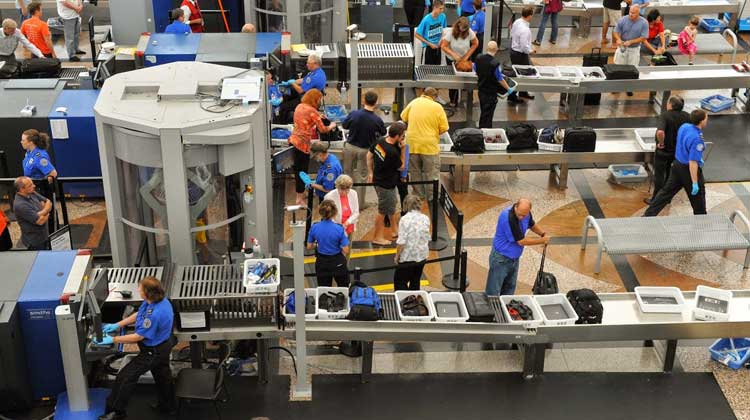The Transportation Security Administration (TSA) began phasing in new carry-on bag screening requirements at Washington-area airports last week.
“These measures, both seen and unseen, include enhanced screening of passengers and electronic devices as well as heightened security standards for aircraft and airports,” said spokesman Mike England in a statement from TSA. “As threats continue to evolve, we, and our partners around the world, will continue to work together to improve intelligence sharing and standardize best practices, while also pursuing technological advancements that will make flying more secure for everyone.”

An example of new requirements is that Washington Dulles International (IAD) and Washington Reagan National (DCA) airport passengers must remove electronics larger than a cell phone from carry-on baggage and place them in a bin when going through security checkpoints.
Similar to requirements for laptop computers, these additional articles must be unobstructed in the bin. Examples noted in a release from TSA include “tablets, e-readers, and cameras.” These new requirements do not impact TSA Pre✓ passengers.
“These new measures will impact all flights from airports that serve as last points of departure locations to the United States,” England added. “The exact number of flights will vary on a day to day basis, but it will affect approximately 2,100 flights daily.”
According to TSA, this could increase the number of individual bag checks at checkpoints. The administration urges travelers to de-clutter their bags, and keep sometimes suspect items such as food packed toward the top of the bag or place such items in a separate bin as well.
In June, then Department of Homeland Security Secretary John Kelly announced the new security requirements for 280 airports in about 100 countries. Speaking at the Council for American Security conference June 28, he noted the Islamic State of Iraq and Syria claim to have downed Russian Metrojet flight 9268 in 2015.
“[I]n March I made the decision to ban electronic devices larger than a cell phone from the passenger cabins of U.S.-bound commercial flights from the 10 airports in the Middle East and North Africa,” Kelly said at the conference. “I made this call based on evaluated intelligence and real concerns that I had about terrorist plotting.”
Stateside requirements that affected DCA and IAD last week began their phase-in in June as well, a process designed to ensure TSA personnel are properly trained in the new procedures.
TSA initially started with 10 airports, including Boise (Idaho), Boston, Colorado Springs, Detroit, Fort Lauderdale, Las Vegas, Los Angeles, Lubbock, (Texas), Phoenix, and San Juan. Other recent airports subject to the new procedures include Albuquerque, N.M., Spokane, Wash., and Bradley International Airport in Connecticut.
© 2017 Homeland411